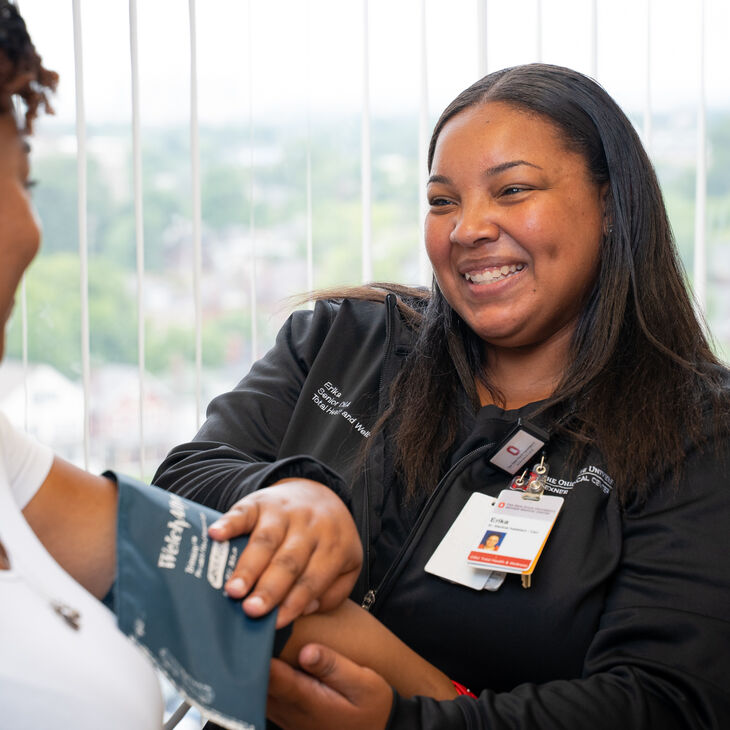by Pat Ford-Roegner
In an unprecedented move, over 200 national and international medical journals (including The Lancet, The New England Journal of Medicine, and International Nursing Review) issued a joint statement in September 2021 regarding the impact of current climate changes on public health:
“Reflecting the severity of the moment, this editorial appears in health journals across the world. We are united in recognizing that only fundamental and equitable changes to societies will reverse our current trajectory.”
The statement urged world leaders to cut heat-trapping emissions to avoid "catastrophic harm to health that will be impossible to reverse." While recognizing the severity of COVID-19 and its challenges for today’s public health systems, the editors stressed time is of the essence to address the enormous impact of climate change; that the world cannot wait for COVID to dissipate first.
One motivation behind this unusual joint statement was the COP26 (United Nations Climate Change Conference 2021) meeting of world leaders in Scotland from October 31-November 12, 2021. While the summit produced some incremental progress and more promises of tougher action against greenhouse gases in the future, the surprise cooperation agreement between the United States and China – the world’s two biggest carbon emitters – carries enormous potential for good if both countries are serious about following through.
The U.S. Call to Action (climatehealthaction.org) will be watching closely. It recognizes that climate change is one of the greatest existential threats to our health and identifies 10 policy recommendations that provide a roadmap for coordination to address climate, health and equity. It is a true public health emergency that impacts the whole public, as former United States Surgeons General Richard Carmona (who is now a professor of clinical practice at The Ohio State University College of Nursing) and David Satcher noted in that Call to Action: “We’re all at risk and our leaders must lead on global warming. Now!”
Coalitions such as the One Health Initiative can show the way. One Health describes itself as “a movement to forge co-equal, all-inclusive collaborations between animal, environmental and human health arenas, i.e. chemical, engineering and social scientists, dentists, nurses, agriculturalists and food producers, wildlife and environmental health specialists and many other related disciplines that fall under its purview.”
The Ohio State University embraces that approach to build One Health capacity among students and professionals worldwide through the Global One Health Initiative (GOHi). GOHi, which is celebrating its tenth anniversary this year, is housed in the Office of International Affairs and represents one of the university’s largest interdisciplinary examples of institutional teamwork.
Health science colleges at Ohio State are digging significantly into the current health and healthcare environment to provide leadership, perspective and service. The College of Public Health, for example, offers a course in Climate Change and Human Health that addresses evidence, controversies and disease threats associated with climate change.
Ohio State’s College of Nursing, which is well-connected to GOHi, offers unique, experiential, nurse-led global engagement through its Office of Global Innovations.
“I am so proud to be part of the team here at the College of Nursing who believes in providing opportunities for our members to become or grow as global citizens,” reflects Dianne Morrison-Beedy, PhD, RN, FNAP, FAANP, FAAN, who serves as the college’s chief talent and global strategy officer. Morrison-Beedy said the Office of Global Innovations seeks to create nurse leaders who understand the big picture through thinking and acting locally and globally. Whether they act through education, research or clinical practice opportunities while at home or abroad, students and faculty are to take on “unfamiliar challenges and seize the day.”
In leaving no stone unturned or BSN student behind, the Office of Global Innovations now offers Global Option Nursing (GO Nursing), resulting in a global transcript designation without adding time to graduation. The office also offers a Graduate Interdisciplinary Specialization in Global Health so students can gain specific expertise in unique healthcare challenges in the developing world and in immigrant populations.
GOHi, the College of Nursing’s Office of Global Innovations and the College of Public Health’s climate change course are examples of how academia can and must provide leadership to address and achieve progress against existential global threats to public health while recognizing more that must be done. As Swedish climate activist Greta Thunberg said, “Right here, right now is where we draw the line. The world is waking up. And change is coming whether you like it or not.”
Pat Ford-Roegner, RN, MSW, FAAN has previously served as Region IV director at the U.S. Department of Health and Human Services, chief executive officer at the American Academy of Nursing and health policy expert for Amplify Public Affairs.





